If you want to let your dog eat food from the table, or you enjoy cooking for your dog, it is important to know which spices dogs can and can’t eat. It is critical for your dog’s health and safety. This is what you need to know about dogs and spices.
Cooking for yourself is one thing, but you have to be more careful when you cook for your dog. When it comes to spices for dogs, there are some that are too strong, some that are dangerous, and others that won’t affect them at all. Keep reading to learn more about which is which.
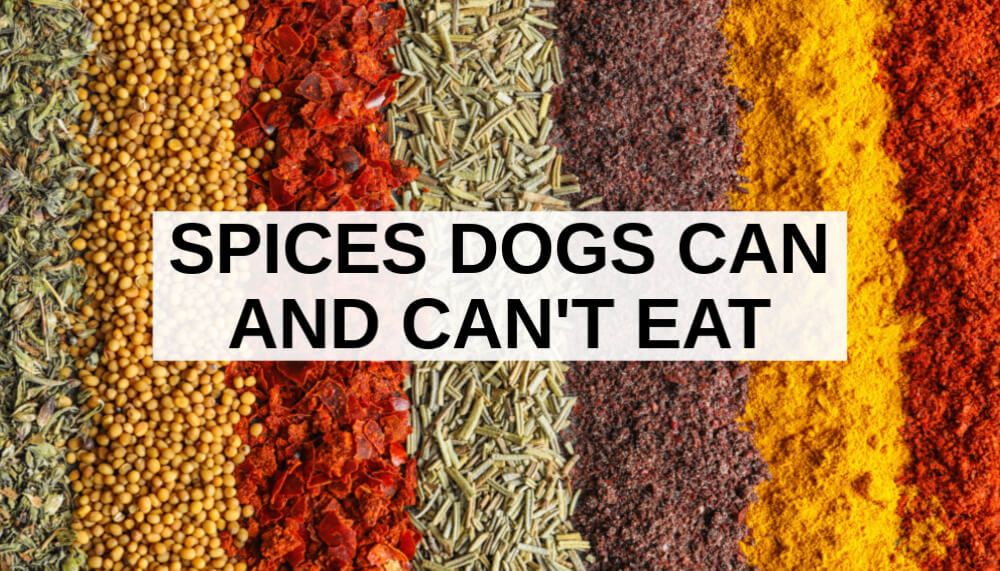
For ultimate pet safety, please ask your vet any questions you have regarding your dog eating spices.
Dogs and Spices: What You Need To Know
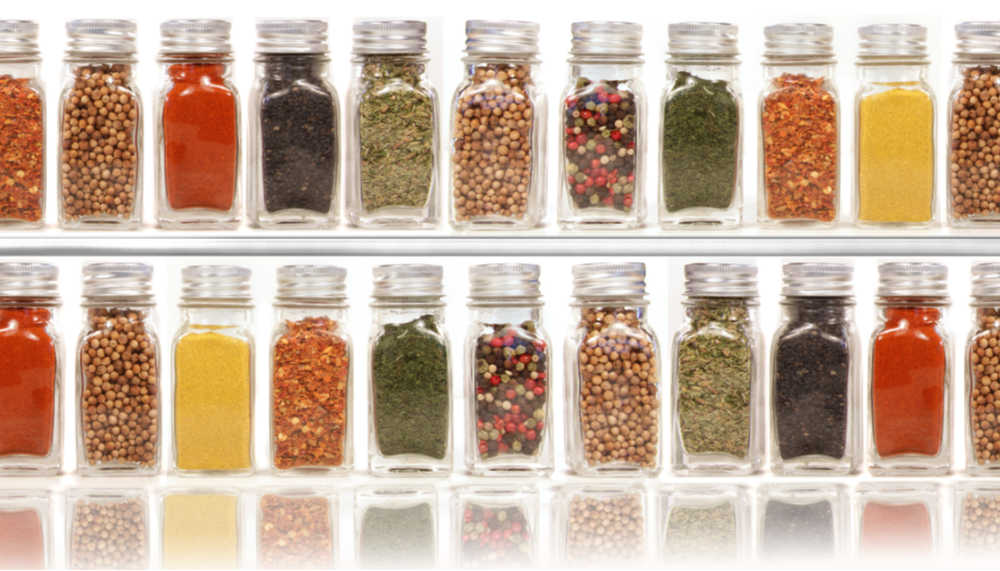
It might be tempting to whip up an extra portion of your dinner and give it to your dog, but is it safe? Can dogs eat spices?
This is a comprehensive list of spices that dogs can and cannot eat, including ones that are safe but you should still be cautious about.
Remember, that when it comes to your pet, large amounts of anything is not a good idea. It’s ok to use a few of the safe spices on your dog’s food, but you should still use caution. Since dogs have fewer taste buds, they don’t need things that are spiced up a lot (like we do on our people food).
If you think your dog ingested unsafe or toxic spices, call the pet poison helpline at 855-764-79661 or your local veterinarian. And please, if you have questions about whether an essential oil is safe or if herbs have health benefits for your dog, ask your veterinarian.
Spices Safe For Dogs
If you have ever wondered, “what spices can dogs eat?” Then this is the list for you. There are so many spices that are either safe, completely toxic, or even just fine for your dog.
First, let’s look at all of the spices that are completely safe for your dog and how to use them.
Can Dogs Eat Cinnamon?
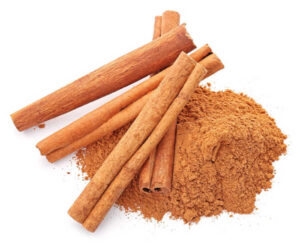
According to the ASPCA, cinnamon powder is non-toxic for dogs. This is a great spice to add to homemade dog biscuits, especially in the fall.
Dogs can safely eat ceylon cinnamon without side effects. In fact, it can help lower blood pressure, which decreases your dog’s risk for heart problems. The anti-inflammatory properties can help decrease joint pain too.
Be aware that when you bake dog treats, there are lots of ingredients that are often paired with cinnamon that are actually really bad for your dog. Avoid giving your dog nutmeg, chocolate, raisins, or macadamia nuts.
Can Dogs Eat Coriander?
Yes, dried and ground coriander is safe for dogs. Another name for it is cilantro. It can help calm stomach upset.
Read more about dogs and cilantro.
Can Dogs Eat Ground Ginger?
Yes, can dogs eat ginger. Some holistic veterinarians use ground ginger to treat upset stomach in pups. For more information, check out this post about ginger and dogs.
This recipe for apple dog treats with ginger is very popular for pups and easy to make.
Can Dogs Eat Saffron?
Saffron is generally safe for your dog to eat in small doses. Of course, if your dog ate an entire jar of saffron it might upset their stomach.
Some dogs might not react very well to saffron, so only give your dog a small bit at first.
Can Dogs Eat Turmeric?
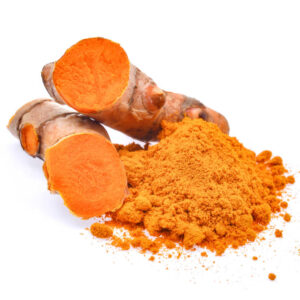
Turmeric has been used by humans for its anti-inflammatory and antioxidant properties. There haven’t been a lot of studies about whether it’s just as good for dogs, but it is known to be safe for dogs to eat.
In fact, some dog foods list turmeric as an ingredient. It is a pretty common additive that enhances flavor and gives the food a more natural color.
Read more about dogs and turmeric.
Spices OK For Dogs
These spices are ok for dogs. In this list, you’ll discover the spices you can give to your dogs, but you should still only give them a little bit of it.
Can Dogs Eat Anise?
Anise is the flavor most often associated with licorice. If you have ever seen a cat go crazy about catnip, you’ll know how dogs will react to anise! In fact, the artificial hare used in greyhound racing is doused in anise oil.
Anise is safe for dogs in small doses. If your dog eats too much, it could rile up their stomach or depress their nervous system.
The safest way to use anise for your dog is to sprinkle a tiny bit in a homemade dog treat.
Can Dogs Eat Cardamom?
Yes, dogs can safely eat ground cardamom in moderation. Holistically, some pet parents use it as an energy booster and a way to treat ringwork due to its anti-inflammatory properties.
Note that too much cardamom can have a laxative effect on dogs.
Read more about cardamom and dogs.
Can Dogs Eat Cayenne Pepper?
Dogs can safely eat cayenne pepper, but they won’t want to touch it. It is really irritating for a dog’s eyes, nose, and skin. Even though it is safe for dogs, keep it away from your dog.
Can Dogs Eat Cumin?
In small amounts, cumin is completely safe for dogs. Be careful with how much you use, however. In large doses, it could upset your dog’s stomach or give them painful gas.
In small amounts, cumin could give older dogs energy or an immune system boost.
Before you start sprinkling it on your dog’s food, give them a tiny amount and observe how they handle it.
Read more about dogs and cumin.
Can Dogs Eat Dried Oregano?
Yes, dogs can heat dried oregano. It’s good for your dog’s immune system because it has antifungal and antibacterial properties. Senior dogs might benefit from it too because it might decrease their risk of developing osteoarthritis.
Note that too much dried oregano can cause gastric irritation so limit the amount you give to your dog.
Spices Bad For Dogs
These are the spices dogs should not eat. Read this list closely and keep these spices away from your dog’s food and don’t let your dog eat human food that has these spices.
Within this list are spices that are poisonous for dogs.
Can Dogs Eat Allspice?
Allspice is made from the dried berries of the Pimeta dioica plant which is a member of the myrtle family. All types of myrtle are toxic to dogs. The dried berries and ground allspice contains eugenol which can cause liver toxicity in dogs.
Read more about dogs and allspice.
Can Dogs Eat Bay Leaves?
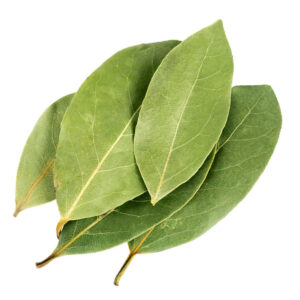
Bay leaves are toxic for dogs. They have eugenol and other toxic essential oils in them.
If your dog eats a bay leaf, they might have some of these symptoms:
- Diarrhea
- Lethargy
- Vomiting
- Depression
- GI Tract Blockages
This leaf has sharp edges that could damage the GI tract.
Dogs don’t have enzymes that can metabolize eugenol and some essential oils like humans do. If you think your dog ate a bay leaf contact your veterinarian immediately.
Can Dogs Eat Chili Powder?
No, dogs cannot eat chili powder. Dogs are very sensitive to spicy foods, and chili powder could upset their stomach in a very bad way.
Chili powder is not exactly toxic for dogs. If they eat something accidentally that was spiced with chili powder, they might just start sneezing a lot and have an upset stomach. Give them plenty of water and watch for worse symptoms.
Can Dogs Eat Cloves?
Just like bay leaves, cloves also have eugenol, which a dog’s body cannot digest. For this reason, cloves are considered toxic to dogs. It can cause serious liver problems.
There are some sources that claim cloves might not be very dangerous to dogs. But since there is still a chance it could harm them, I suggest avoiding it completely and talking to your veterinarian before introducing it to your dog.
Can Dogs Eat Cocoa Powder?
Dogs should not eat cocoa powder. It contains up to 26mg of theobromine per gram, which is highly toxic to dogs.
Cocoa powder also contains caffeine which can drastically increase a dog’s heart rate and stimulate the nervous system.
Can Dogs Eat Curry Powder?
Curry is another spice that is too powerful for dogs to digest. Just like chili powder, too much curry could cause diarrhea and other problems like an upset stomach.
If your dog gets into your curry meal, give them plenty of water and watch out for health problems like lethargy and vomiting.
Can Dogs Eat Garlic Salt or Garlic Powder?
Garlic is an ingredient that you should always keep away from your dog in all forms. Garlic contains thiosulfate which is toxic to dogs.
Fresh garlic, garlic salt, and garlic powder are all toxic to dogs. Thiosulfate causes oxidative damage to your dog’s red blood cells. This results in hemolytic anemia.
Rest assured that a sprinkle of garlic powder won’t do much damage. Studies show it would take about 5 cloves of garlic to harm your dog.
Can Dogs Eat Marjoram?
Marjoram is another toxic spice to dogs. It could cause gastric irritation which would lead to diarrhea and vomiting.
Can Dogs Eat Nutmeg?
Nutmeg is another spice that is toxic to dogs. This is because it contains Myristicin.
Just like with the other spices in this list, it takes a large dose to really cause harm to your dog. At high doses, nutmeg can cause disorientation, hallucinations, rapid heart rate, and higher blood pressure.
If they eat one cookie that has a minor amount of nutmeg, just keep an eye on them. Chances are they will be ok. Dogs with really sensitive stomachs might still experience an upset stomach.
Read more about dogs and nutmeg.
Can Dogs Eat Onion Powder?
Onions in all forms – even the powder – contain N-propyl disulfide which causes a breakdown of red blood cells and anemia in dogs. You should keep your dog away from onions and anything containing onion powder.
Can Dogs Eat Paprika?
Paprika isn’t as dangerous to dogs as some of the other spices in this list, but it is still unsafe to just give your dog.
It’s been known to cause skin and eye irritation. It can also upset your dog’s stomach. Keep your dog away from the jar of paprika and avoid giving your dog anything that is made with paprika.
Can Dogs Eat Vanilla?

Vanilla extract and imitation vanilla both contain a high alcohol content that isn’t safe for your dog.
Dogs cannot break down alcohol in their bodies. If they drink too much vanilla extract, it could give them alcohol poisoning.
That being said, if you find alcohol-free vanilla that uses vegetable glycerin, you can use this safely in homemade dog treats.
Spice Mixes and Dogs
There are also a lot of different spice and seasoning mixes. As you know, it is a good idea to serve your dog food that is plain or unseasoned. Here is a bit of information about popular spice mixes and whether they are safe for your furry friends.
- Adobo Seasoning – Since this is made with both salt and garlic, you should not let your pet eat it..
- Hot Sauce – This is made with chili peppers that could make your dog cough and give them stomach pain. Do not give it to your pet.
- Italian Seasoning – This premade mix usually includes marjoram, which is toxic for dogs.
- Lemon Pepper – Since dogs should not have black pepper, do not use lemon pepper.
- Poultry Seasoning – This also contains the toxic ingredient Marjoram. Do not give it to your dog.
- Taco Seasoning – This mixture usually includes both onion powder and garlic powder. You should not give your dog anything that was seasoned with taco seasoning.
Fresh Herbs and Dogs
Just like with dried herbs, fresh herbs could be beneficial or toxic. This guide to fresh herbs and dogs will answer all of your questions.
Lots of people like to grow dill, oregano, sage, and thyme. If you do, read that guide first so you know what to do if your dog gets into your herb garden.
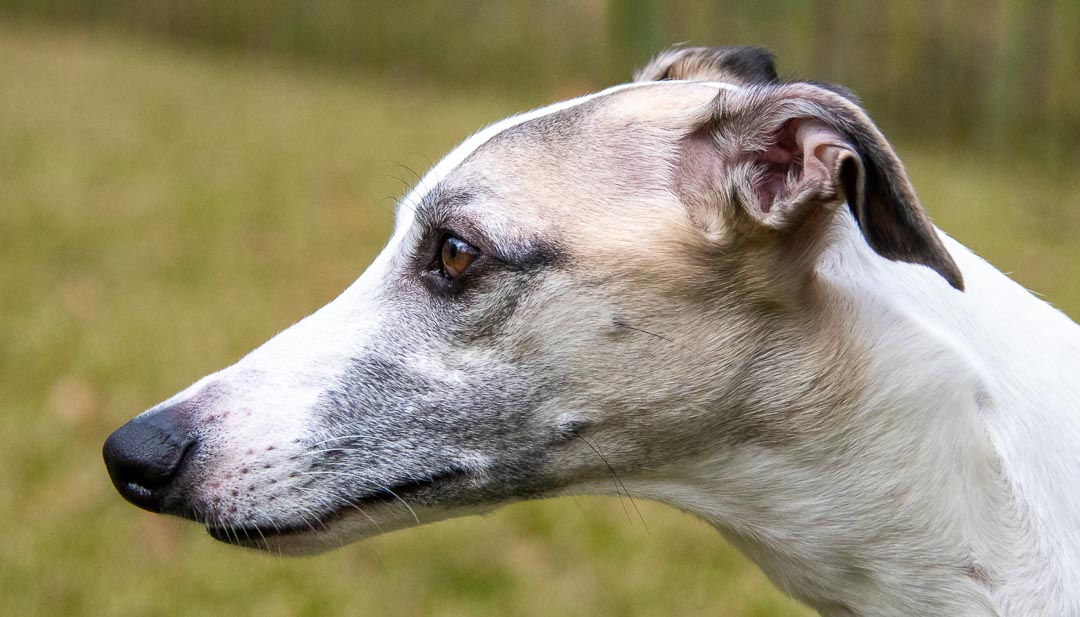
Seasoning For Dog Food
If you want to make your own dog food or add a little flavor to the food you buy your dog, these are the seasonings that are safe for dogs.
What can I season my dog’s food with?
If you want to add a little bit of flavor to homemade dog food, always just add a little bit. You might enjoy spicy food, but a dog can’t handle the same amount you can.
Season dog food with just one type of the following dog-friendly spices per meal.
- Fresh parsley
- Ginger
- Fresh blueberries
- Sage
- Fresh green peppers
Learn more about dogs and fresh herbs.
Remember, too much salt is bad for your dog. This guide to salt and pepper and dogs has a lot more information.
Dogs and Spices: Final Thoughts
As you can see, dogs don’t really need a lot of extra spices and flavors in their food. Feeding them food recommended by your veterinarian will give them all the nutrition they need.
If you want to make your own dog food, be very careful with how many spices you add. Avoid toxic spices and always watch for any gastrointestinal reactions to new flavors you introduce.
More Dog Food Resources
Here are even more resources about different human foods your dog can and cannot eat.
- Can Dogs Have Salt and Pepper
- Can Dogs Eat Cockles
- Can Dogs Eat Salmon
- Can Dogs Eat Sunflower Seeds
- Can Dogs Eat Zucchini
- Safe and Toxic Nuts for Dogs
Find lots of articles on foods dogs can eat and ones they can’t right here on Spoiled Hounds!
📌 Pin this to save and share 📌
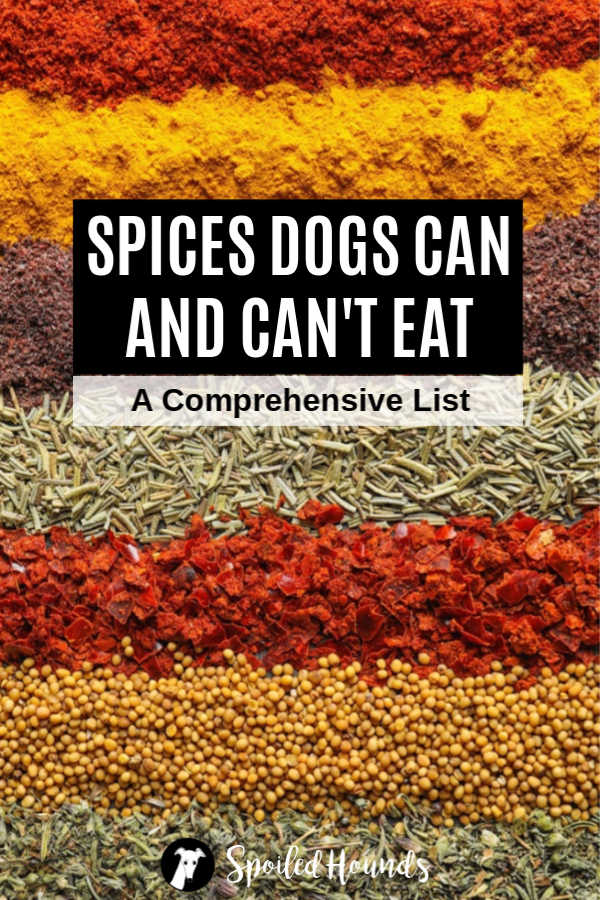
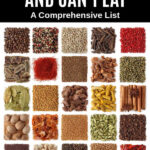
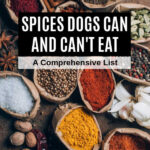
Just wondering if marjoram is really dangerous for dogs? As I was making my dog’s food (6 lbs of meat & some veggies) I added some Italian seasoning, thinking it was ok for my dog to consume. Then I read that the first ingredient listed was marjoram. When I looked up if marjoram was safe for dogs, everyone was saying that it’s toxic for them. I didn’t add that much, but I got scared, so I scraped the seasoning off the top of his food before I mixed it and I think I got most of it out. Is this something I need to really be concerned about? How dangerous is marjoram considering it is combined with other safe spices in the Italian seasoning and I took as much as I could off? I’m just worried, I don’t want to make a big deal if it’s not something to freak out over. I just want to know if it’s ok for him to eat the food now. Please help, thank you.
Yes, marjoram is dangerous to dogs. It causes gastric irritation which leads to diarrhea and vomiting. How sick a dog gets from consuming it can vary depending on how much was consumed, the size of the dog, and other factors. Just keep a watch on your dog and look for any signs of illness and take your dog to the vet if there are any symptoms.
When roasting a whole chicken I put two bay leaves amongst other herbs (that are definitely safe) inside for flavour, my dog has his own plate any time I cook a roast (beef or chicken) and afterwards stew, he’s never had any negative reaction but recently I’ve learned that bay leaves are toxic. Is that the leaf itself or also flavouring? If it’s also flavouring I will definitely not be using bay leaves again. Thank you for any help possible
It’s the flavoring and the leaf. The flavoring comes from the oil in the leaf that is toxic.
If you have cooked a chicken or chuck roast in a Dutch oven or slow cooker and have put in a couple of bay leaves, can you give your dog some of the meat inside the roast that has not been in direct contact with the bay leaves or cooking medium?
Appreciate your input – thank you!
To be safe, it would be best not to give your dog any food cooked with bay leaves.
Your information on Allspice is partially incorrect. You list it as a spice mix of Cinnamon, Nutmeg and Cloves. It is none of these. Allspice is the dried berry of a tree in the Myrtle family. While the ASPCA does not list the specific variety of Myrtle in its Toxic / Non-Toxic list, all listed varieties of the Myrtle are on the Toxic list, so these are most likely toxic, as well. It simply belongs in the list of individual spices, not as a spice mix or blend.
Thank you for this information Barry! I need to look into this more and update my article.
Yes, I have a serious cinnamon allergy (anaphylaxis even with minute traces) but can have allspice…that’s how I bake for the holidays without cinnamon (½ the amount of allspice in place of cinnamon…i.e. if recipe calls for ½ tsp. Cinnamon I use ¼ tsp. Allspice)
Hope this helps 😉
Oh and just wanted to say thank you for publishing these guides!
I make my own food for my dogs breakfast and give them kibble and a bit of canned dog stew for dinner. I add turmeric and yeast flakes for a cheesy taste, that’s ok, right?
Turmeric is safe in small doses. The recommended daily dose of turmeric is anywhere between 1/8 to 1/4 tsp for every 10 pounds of your dog’s weight.
Nutritional yeast (yeast flakes) is safe for dogs but check to make sure it does not contain garlic (some brands include it in the product). The recommended amount is less than 1 teaspoon daily but check with your vet for the exact dosage for your dog. Please note that regular yeast (like for making bread) is toxic to dogs.
I love reading blog posts like this because it helps me to better understand my dog. I always knew that he couldn’t eat chili peppers, but I didn’t know that he couldn’t eat other spices, too. Thanks for the article!